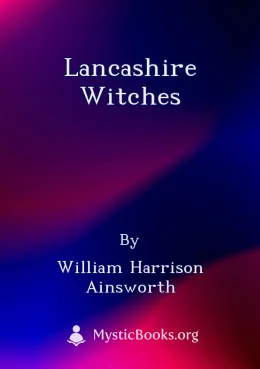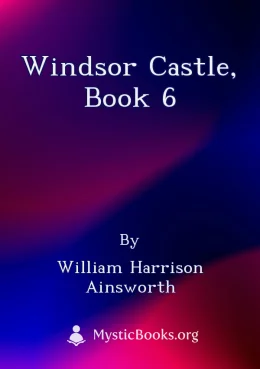
Timeline
Title
Country/Nationality
William Harrison Ainsworth
William Harrison Ainsworth (1805-1882) was a prominent English author and editor of the 19th century. With a remarkable career spanning several decades, Ainsworth left an indelible mark on the literary world through his innovative writing style, strong principles, and influential works. This essay explores his life, principles, notable achievements, and enduring philosophy, highlighting his significant contributions to literature and his lasting impact on generations of readers and writers.
Who Was William Harrison Ainsworth?
William Harrison Ainsworth was born on February 4, 1805, in Manchester, England. Raised in a literary environment, his father was a solicitor and magazine publisher, which exposed young Ainsworth to the world of books and storytelling from an early age. He attended Manchester Grammar School and later studied law, which would eventually play a significant role in his literary career.
Principles and Writing Style:
Throughout his career, Ainsworth upheld several key principles in his writing. He believed in the power of storytelling to captivate readers and preferred to write in a vivid and engaging style that combined historical accuracy with thrilling narratives. Ainsworth's prose was known for its descriptive richness and ability to transport readers to different historical periods, making his stories come alive on the pages.
Famous For and Notable Works:
Ainsworth gained widespread fame for his historical romances, which were immensely popular during the Victorian era. One of his most famous works, "Rookwood" (1834), is a gripping tale of romance, highwaymen, and the supernatural, set in 18th-century England. The novel's success established Ainsworth's reputation as a master of historical fiction and paved the way for future works.
Another notable creation was "The Tower of London" (1840), a riveting novel set in the tumultuous times of Queen Mary I of England. This work further solidified Ainsworth's reputation as a historical novelist and showcased his ability to intertwine historical events with captivating fictional characters.
Perhaps his most celebrated and enduring work is "The Lancashire Witches" (1848). In this novel, Ainsworth delves into the tragic events surrounding the infamous Pendle witch trials of 1612. The book combines historical research with elements of Gothic fiction and was met with critical acclaim for its compelling storytelling and exploration of human psychology.
His Philosophy:
Ainsworth's literary philosophy revolved around the idea that historical fiction could be both entertaining and educational. He sought to immerse readers in different historical periods, bringing attention to important events and figures while highlighting the complexities of human nature. Moreover, his belief in the power of storytelling as a means of connecting with audiences and passing down knowledge underscores his dedication to the craft of writing.
Legacy and Remembrance:
William Harrison Ainsworth's works had a lasting impact on the literary world and continue to be remembered and appreciated to this day. Though his novels may not be as widely read as those of some contemporaries, his contributions to the genre of historical fiction are undeniable. His vivid descriptions, dynamic characters, and gripping narratives inspired other authors to explore the genre and create their own historical masterpieces.
While Ainsworth's popularity waned in the late 19th century, his legacy remains alive in literary history. His works have been studied, adapted for the stage and screen, and have left a lasting influence on subsequent generations of writers. Modern authors, especially those in the historical fiction genre, often look to Ainsworth's pioneering works for inspiration in crafting their own stories.
William Harrison Ainsworth's life and literary career embody the essence of a visionary writer who believed in the power of storytelling to educate, entertain, and inspire. His dedication to historical accuracy, paired with his skillful narrative techniques, ensured his place as a prominent figure in the world of historical fiction. Today, Ainsworth's works continue to resonate with readers and writers alike, testaments to his enduring legacy in the realm of English literature. As we remember Ainsworth, we honor the significant impact he made on the art of storytelling and the enduring power of literature to transcend time and connect generations.
Books by William Harrison Ainsworth

The Star-Chamber: An Historical Romance, Volume 1
In the shadows of history, where conspiracy meets love, a clandestine court reigns—a court known only as The Star-Chamber. Step back in time to the turbulent reign of King James I, where power and politics entwine with romance in William Harrison Ain...

The Star-Chamber: An Historical Romance, Volume 2
As the clouds of uncertainty gather over England, the enigmatic secret court, known as the Star-Chamber, unleashes its shadowy powers, pulling unsuspecting souls into its web of justice and manipulation. Amidst this storm, the forbidden love between...

Rookwood
A rich and complex Gothic-Romance centring on the murky deeds of an ancient family. It is a wonderfully atmospheric piece that combines narrative, poetry, song, and descriptive writing to great effect. The character of Dick Turpin that we know today...

Lancashire Witches
The Lancashire Witches is a highly fictionalised account of the activities of the notorious witches Demdike, Chattox and Alice Nutter who, together with others terrorised the district of Lancashire around Pendle Hill and the Forest of Bowland during...

Windsor Castle, Book 1
Set against the backdrop of the English Tudor court, "Windsor Castle" follows the tumultuous events surrounding Henry VIII's pursuit of Anne Boleyn. The novel explores the intricacies of courtly life, with its web of love, ambition, and political man...

Windsor Castle, Book 2
Windsor Castle, Book 2 by William Harrison Ainsworth is a historical novel set in the court of Henry VIII. The novel follows the events surrounding Henry's pursuit of Anne Boleyn and his eventual marriage to her. The novel also features the character...

Windsor Castle, Book 3
Windsor Castle, Book 3 is a historical novel set in the Tudor period. It tells the story of Henry VIII's divorce from Catherine of Aragon and his marriage to Anne Boleyn. The novel also features the story of Herne the Hunter, a legendary figure assoc...

Windsor Castle, Book 4
The novel, set against the backdrop of Windsor Castle, revolves around the tumultuous events surrounding Henry VIII's pursuit of Anne Boleyn and his subsequent break with the Catholic Church. It intertwines the lives of various historical figures, in...

Windsor Castle, Book 5
Windsor Castle, Book 5: Mabel Lyndwood is a captivating historical novel that immerses readers in the tumultuous reign of Henry VIII. Set against the backdrop of the king's pursuit of Anne Boleyn, the story explores the complex relationships and poli...

Windsor Castle, Book 6
This book follows the events surrounding King Henry VIII's pursuit of Anne Boleyn as his new wife, amidst the backdrop of the Tudor court. The story delves into the political and personal struggles surrounding the King's desire to divorce Catherine o...

Auriol, or The Elixir of Life
Auriol Darcy, the protagonist, enters into a dangerous pact with the devil to gain immense wealth in exchange for the Elixir of Life, promising him eternal youth and health. However, Auriol soon realizes the devastating consequences of his bargain....

December Tales
This collection of short stories explores the complexities of human emotions and experiences, particularly within the context of winter and its associated themes of endings and new beginnings. The narratives encompass love and loss, death and rebirth...

Jack Sheppard: A Romance
Jack Sheppard is a classic example of historical fiction, recounting the daring escapades of a real-life 18th-century English outlaw. The novel vividly depicts the criminal underworld of London, with Sheppard as a charismatic and resourceful protago...